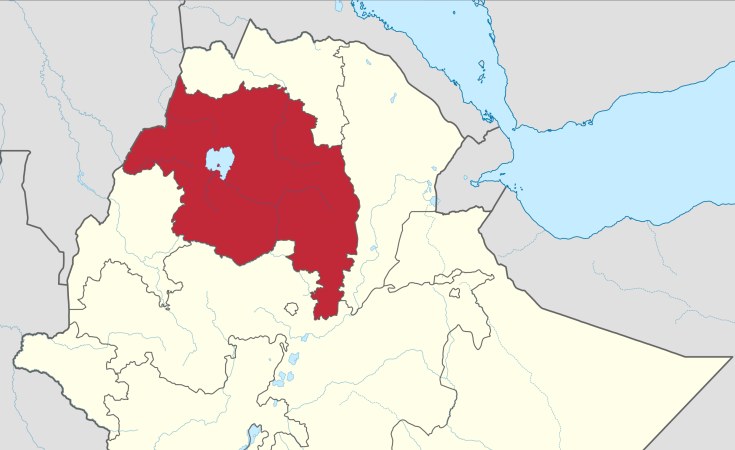Addis Abeba — A recent conflict in the Amhara region between the federal government and a non-state armed group known as Fano has wreaked havoc on local industries, leading to damages. According to the initial assessment, the loss is estimated at 2.5 billion birr.
Amhara Industry and Investment Bureau announced yesterday that over 3,000 permanent workers lost their jobs due to the damage that occurred in industries. Particularly hard-hit are investments involved in the cultivation and marketing of flowers, vegetables, and fruits, according to Endris Abdu, the head of the bureau. Endris emphasized that the region's 38 industries engaged in the production and export of these agricultural products generated $128 million in revenue in the just-concluded fiscal year.
Endris has pointed out that business slowdown and investment activities in the region have been picking up speed after the signing of the Pretoria Peace Agreement between the federal government and forces in Tigray in November 2022. According to the Bureau, a total of 4,727 local and foreign investors applied for investment licenses in the 2015 Ethiopian fiscal year.
During the just-concluded fiscal year, the regional government invested a total of 464 million birr with the aim of revitalizing defunct industries. This initiative, dubbed "Ethiopia Tamerit," roughly translated as "Let Ethiopia Produce," was launched in May 2022. Its primary objective was the rejuvenation of over 446 dormant industries identified by the Ministry of Industry across the nation. The Bureau chief revealed that 324 previously defunct industries resumed production.
The industries in the region have suffered greatly due to a prolonged two-year conflict that began in November 2020 and caused widespread destruction across the Tigray, Amhara, and Afar regions. An assessment conducted by the Ministry of Industry a year ago revealed that industries situated in eight of the region's twelve zones, such as Dessie, North Shewa, Wollo, and South Gonder, have been severely impacted by the war. Kombolcha Industrial Park alone has incurred damages worth half a billion birr due to the conflict.
The extensive economic devastation caused by the two-year-long war in the Amhara region cannot be overlooked, especially considering that this region accounts for 22% of the national Gross Domestic Product (GDP). In a recent interview, Abate Getahun, the Director of the Amhara Region Rehabilitation, Reconstruction, and Redevelopment Fund Office, disclosed to Addis Standard that the estimated cost of rebuilding the war-ravaged areas in the Amhara region surpasses a staggering half a trillion birr.
For months, tension and sporadic clashes have engulfed large parts of the Amhara region, which is the second-largest regional economy after Oromia. However, the fighting has intensified since 03 August, 2023. The dire situation has prompted Yelikal Kefale, the President of the restive Amhara region, to request the intervention of the federal government.
On 04 August, 2023, the Council of Ministers unanimously decided to declare a state of emergency. Ten days after the Council of Ministers' decision, the House of People's Representatives endorsed the state of emergency, which will be enforced for the next six months.
Despite ongoing efforts, intense conflict has erupted in key urban centers such as Bahir Dar, Dibre Berhan, Gondor, and Shewa Robit, which are home to a substantial portion of the region's industries. A press release issued by the Ethiopian Human Rights Commission on 14 August, 2023, revealed that four heavily populated neighborhoods in the city of Debre Birhan experienced fierce fighting between 6 - 7 August, resulting in the tragic deaths of civilians, including factory workers who were caught in the crossfire and targeted by heavy artillery in their workplaces.
Last week, the command post responsible for managing the state of emergency announced that various cities and towns had been liberated from the grip of an armed group. Following the command post's implementation of a curfew and its advice to service providers, government offices, and commercial entities to resume activities, reports have emerged of major cities in the Amhara region gradually returning to a state of normalcy.


